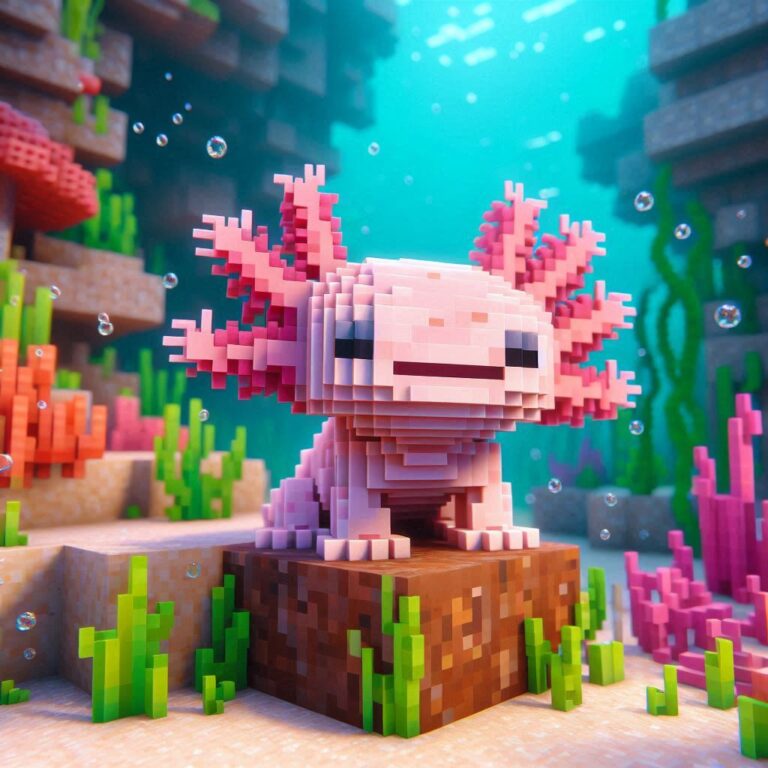
Axolotls can indeed consume beef heart, albeit in moderation and as part of a diverse diet. Beef heart offers a valuable source of protein, essential for the growth and maintenance of axolotls. However, it’s crucial to properly prepare the beef heart by rinsing off excess fat and cooking it thoroughly to eliminate any potential pathogens. Feeding raw beef heart is not advisable due to the risk of bacterial contamination and digestive issues. While beef heart can provide beneficial nutrients such as vitamins and minerals, overfeeding may lead to obesity and digestive problems in axolotls. Therefore, offering beef heart as an occasional treat, alongside a variety of other foods like earthworms, bloodworms, and commercial axolotl pellets, ensures a balanced diet for these fascinating amphibians.
What does the beef heart do to the axolotl?
Beef heart, when included in the diet of axolotls, serves as a rich source of essential nutrients vital for their overall health and well-being. Beyond merely satisfying their hunger, beef heart provides a significant boost to their dietary diversity. The unique composition of beef heart offers a plethora of proteins, vitamins, and minerals tailored to meet the specific nutritional needs of axolotls. These nutrients play crucial roles in various physiological functions, ranging from muscle development to immune system support. Moreover, the consumption of beef heart can stimulate natural behaviors in axolotls, encouraging them to actively forage and engage with their environment. Overall, incorporating beef heart into the axolotl’s diet enhances their overall vitality and enriches their feeding experience.
Impact on Digestion
The inclusion of beef heart in the diet of axolotls can have notable effects on their digestive processes. Axolotls possess a simple digestive system optimized for processing a diverse range of foods, including meats like beef heart. When consumed, beef heart undergoes enzymatic breakdown within the axolotl’s digestive tract, facilitated by enzymes secreted by the pancreas. The proteins present in beef heart are hydrolyzed into smaller peptides and amino acids, which are then absorbed through the intestinal lining into the bloodstream. This efficient digestion ensures that axolotls can extract maximum nutrition from the beef heart, fueling their metabolic activities and supporting their growth and maintenance. However, it’s crucial to monitor the quantity of beef heart offered to axolotls to prevent overloading their digestive system, which can lead to digestive issues such as bloating or constipation.
Nutrient Absorption
The consumption of beef heart by axolotls directly impacts their ability to absorb essential nutrients crucial for their physiological functions. Beef heart is particularly rich in proteins, which are vital for tissue repair, growth, and muscle development in axolotls. Within the digestive tract, proteins from beef heart are broken down into amino acids, the building blocks of proteins, through enzymatic hydrolysis. These amino acids are then absorbed through the intestinal lining into the bloodstream, where they are transported to various tissues and organs. Additionally, beef heart contains essential vitamins and minerals that contribute to the overall health and vitality of axolotls. These nutrients are absorbed along with amino acids and play pivotal roles in metabolic processes, immune function, and overall well-being. Therefore, including beef heart in the axolotl’s diet ensures optimal nutrient absorption, supporting their growth, development, and overall health.
Nutritional Value of Beef Heart for Axolotls
Beef heart stands out as a highly nutritious food source for axolotls, offering a balanced array of essential nutrients crucial for their growth and vitality. This organ meat packs a nutritional punch, providing a diverse array of proteins, fats, vitamins, and minerals tailored to meet the specific dietary requirements of axolotls. Unlike many commercially available foods, beef heart offers a natural and unprocessed source of nutrition, mimicking the diversity of prey items axolotls would encounter in their natural habitat. Incorporating beef heart into their diet not only ensures adequate nutrition but also promotes natural foraging behaviors and encourages engagement with their environment.
Protein Content
Proteins are the building blocks of life, and beef heart is renowned for its high protein content, making it an ideal dietary component for axolotls. Proteins play a crucial role in the growth, development, and repair of tissues and organs in axolotls. The proteins found in beef heart contain essential amino acids, including lysine, methionine, and arginine, which are vital for maintaining optimal health in axolotls. These amino acids are involved in various physiological processes, such as muscle development, enzyme production, and immune function. By providing a rich source of high-quality protein, beef heart supports the overall health and vitality of axolotls, ensuring they thrive in captivity.
Fat Content
While axolotls primarily rely on protein-rich diets, moderate amounts of fat are also essential for their health and well-being. Beef heart contains a balanced ratio of fats, including both saturated and unsaturated fatty acids, which are crucial for energy production and nutrient absorption in axolotls. Additionally, fat-soluble vitamins, such as vitamin A and vitamin D, are found in beef heart, further enhancing its nutritional value. However, it’s essential to offer beef heart in moderation to prevent excessive fat intake, which can lead to obesity and other health issues in axolotls.
Vitamins and Minerals
In addition to proteins and fats, beef heart is rich in vitamins and minerals essential for the overall health and vitality of axolotls. Vitamins play critical roles in various physiological processes, acting as coenzymes and antioxidants that support metabolism, immune function, and overall well-being. Beef heart contains significant amounts of B vitamins, including B12, riboflavin, and niacin, which are essential for energy production and nervous system function in axolotls. Furthermore, beef heart is a good source of minerals such as iron, zinc, and selenium, which are necessary for the formation of hemoglobin, enzyme function, and antioxidant defense mechanisms. By incorporating beef heart into their diet, axolotls can obtain a diverse array of vitamins and minerals essential for their growth, development, and overall health.
Raw Beef Heart vs Cooked Beef Heart
The debate between feeding raw or cooked beef heart to axolotls sparks curiosity among enthusiasts. Raw beef heart retains its natural nutritional profile, offering a rich array of vitamins, minerals, and enzymes. However, feeding raw meat carries the risk of bacterial contamination, which can lead to digestive issues or infections in axolotls. On the other hand, cooking beef heart eliminates pathogens, making it safer for consumption. However, cooking may result in some loss of heat-sensitive nutrients. Therefore, the choice between raw and cooked beef heart depends on balancing nutritional benefits with potential risks.
Nutrient Retention
The cooking process alters the nutrient composition of beef heart to some extent. While cooking effectively kills harmful bacteria, it may also cause a reduction in certain heat-sensitive vitamins and enzymes. However, many essential nutrients remain intact even after cooking. For instance, proteins and minerals are relatively stable and retain their nutritional value. Therefore, while cooking beef heart ensures safety, it’s essential to consider the potential impact on nutrient retention and balance it with the benefits of eliminating pathogens.
Digestibility
Cooking beef heart enhances its digestibility for axolotls. The heat breaks down complex proteins and makes them more accessible for digestion. This can be particularly beneficial for juvenile axolotls or individuals with weaker digestive systems. However, overcooking can lead to protein denaturation, affecting the texture and palatability of the meat. Therefore, it’s essential to cook beef heart thoroughly while ensuring it remains palatable for axolotls to consume.
Potential Risks
Feeding raw beef heart to axolotls poses certain risks, primarily associated with bacterial contamination. Raw meat may harbor pathogens such as Salmonella or E. coli, which can cause gastrointestinal issues or infections in axolotls. Additionally, feeding raw meat increases the risk of introducing parasites into the axolotl’s habitat. Cooking beef heart mitigates these risks by eliminating harmful bacteria and parasites, making it safer for consumption. However, it’s crucial to handle and store raw meat properly to prevent contamination. Overall, while raw beef heart offers nutritional benefits, the potential risks associated with bacterial contamination highlight the importance of considering safety when feeding axolotls.
Pros and Cons of Eating Beef Heart for the Axolotl

Beef heart presents axolotls with a unique dietary option, offering both benefits and drawbacks to consider. Understanding the pros and cons can help axolotl keepers make informed decisions about incorporating beef heart into their pets’ diets.
Pros
Nutritional Richness
Beef heart is a nutrient-dense food, providing axolotls with essential proteins, fats, vitamins, and minerals necessary for their growth and overall health. It serves as an excellent source of high-quality protein, promoting muscle development and tissue repair in axolotls.
Dietary Diversity
Including beef heart in the axolotl’s diet adds variety and enrichment, mimicking their natural feeding behaviors in the wild. Offering a diverse range of foods prevents dietary monotony and encourages axolotls to exhibit natural foraging behaviors, promoting physical and mental stimulation.
Palatability
Many axolotls readily accept beef heart as a food source due to its palatability and texture. Its rich flavor can entice even picky eaters, making it easier for axolotl keepers to provide a balanced and nutritious diet.
Cons
Risk of Bacterial Contamination
Feeding raw beef heart to axolotls carries the risk of bacterial contamination, including pathogens like Salmonella and E. coli. These bacteria can cause gastrointestinal issues or infections in axolotls, posing a significant health risk if not properly handled or prepared.
Potential Digestive Issues
Consuming beef heart, especially in large quantities or if not adequately prepared, can lead to digestive problems such as bloating, constipation, or diarrhea in axolotls. Overfeeding beef heart may overwhelm their digestive system, disrupting their gut flora balance and causing discomfort.
Nutrient Imbalance
While beef heart offers a rich source of nutrients, it may lack certain essential vitamins or minerals necessary for a balanced axolotl diet. Relying too heavily on beef heart without supplementing with other foods can result in nutrient imbalances and deficiencies over time.
FAQs
1. Can axolotls eat beef heart regularly?
A. Yes, axolotls can consume beef heart as part of their diet, but it should be offered in moderation and as part of a balanced diet.
2. Is beef heart a suitable source of protein for axolotls?
A. Beef heart is indeed a good source of protein for axolotls, providing essential amino acids necessary for their growth and maintenance.
3. How should beef heart be prepared for axolotls?
A. Beef heart should be thoroughly rinsed to remove any excess fat and cooked to eliminate potential pathogens before feeding it to axolotls.
4. Can axolotls eat raw beef heart?
A. Feeding raw beef heart to axolotls is not recommended due to the risk of bacterial contamination and potential digestive issues.
5. Are there any nutritional benefits to feeding axolotls beef heart?
A. Yes, beef heart contains essential nutrients such as protein, vitamins, and minerals that can contribute to the overall health of axolotls.
6. What are the potential risks of feeding beef heart to axolotls?
A. Overfeeding beef heart can lead to obesity and digestive problems in axolotls. Additionally, uncooked beef heart may contain harmful bacteria.
7. How often should axolotls be fed beef heart?
A. Beef heart should be offered as an occasional treat rather than a staple in the axolotl’s diet. It can be fed once or twice a week in small portions.
8. Can axolotls develop allergies to beef heart?
A. While axolotls can develop sensitivities to certain foods, allergies to beef heart are rare. However, monitoring their reaction to new foods is recommended.
9. Should beef heart be supplemented with other foods in the axolotl’s diet?
A. Yes, beef heart should be supplemented with a variety of other foods such as earthworms, bloodworms, and commercial axolotl pellets to ensure a balanced diet.
10. Are there any alternatives to beef heart for axolotls?
A. Yes, axolotls can be fed a variety of protein-rich foods including shrimp, fish fillets, and insect larvae as alternatives to beef heart.
Conclusion
In conclusion, beef heart presents axolotl enthusiasts with a versatile dietary option, offering a blend of nutritional benefits and considerations. Its nutrient-rich profile provides essential proteins, fats, vitamins, and minerals crucial for axolotl growth and vitality, enhancing their overall health and well-being. Additionally, its palatability and dietary diversity promote natural feeding behaviors, enriching the axolotl’s captive environment. However, axolotl keepers must remain vigilant of potential risks, such as bacterial contamination, digestive issues, and nutrient imbalances, associated with feeding beef heart.

Hassan Shah carries over four years of hands-on expertise in caring for axolotls, guided by his cherished companion ‘Little Bruno,’ a thriving axolotl under his attentive care for three years.



